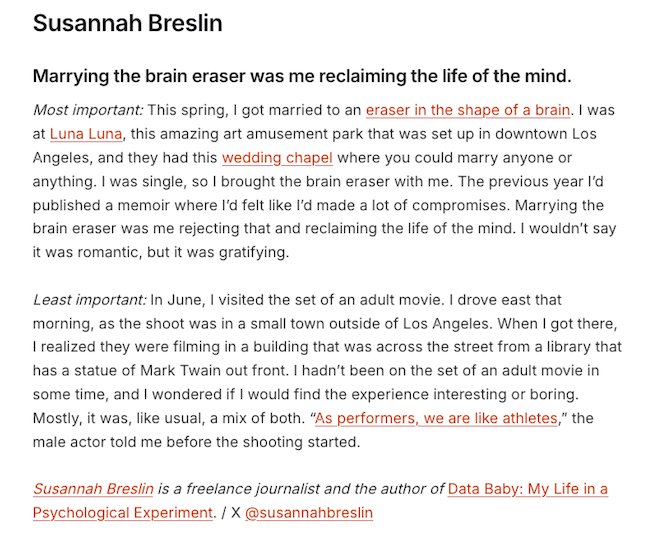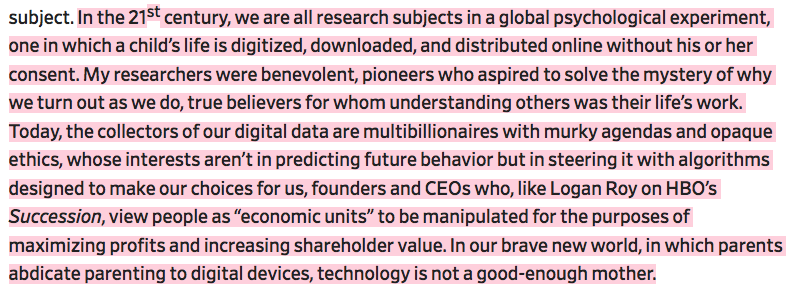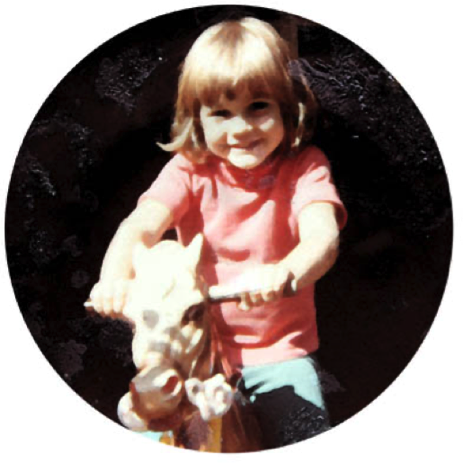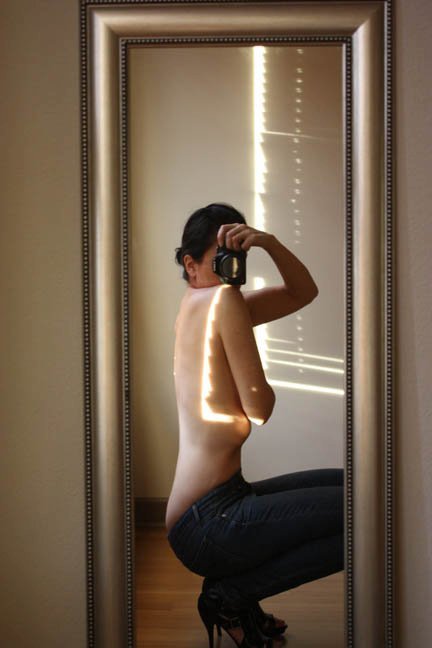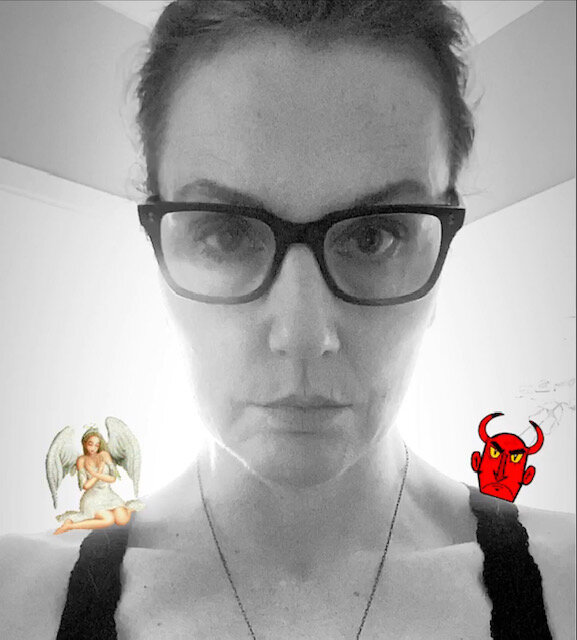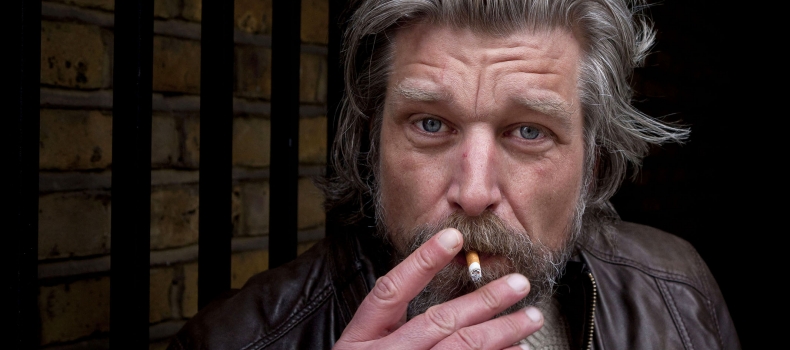This story was originally published on This Recording in September 2010.
Maybe a year or so ago, or maybe it was closer to two, I got a phone call from Ari Emanuel. In case you’ve never heard of him, he’s a famous agent in Hollywood and the inspiration for Ari Gold, who is played by Jeremy Piven on Entourage. When I picked up the phone, a woman who sounded like she was Asian and maybe in an elevator said, “Will you hold for Ari Emanuel, please?” I said, “Yes,” because that’s what you do when Ari Emanuel calls, or so I assumed. I don’t remember what I was doing at the time. Probably nothing. I was probably wearing sweatpants and a T-shirt with food stains on it. I am sure it was not glamorous.
I can’t remember what Ari said, but it was something like, “You’re the porn writer?” This was not exactly true. I had been writing about the adult movie industry on-and-off for a decade or so. I wrote about porn, but I was not a “porn writer,” per se. I think I said, “Yes,” because it seemed like the easiest answer I could think of. Then Ari started to speak very quickly about people named Mark and Lev and a famous director, and I had no idea who he was talking about or what he was talking about. I listened to him talk on at this speedy clip. I imagined him barreling out of an elevator with his frantic, frightened entourage of small, insignificant people in tow, and him climbing into a large car with blacked-out windows. He paused. I said, “Mark, who?” He said, “Mark Wahlberg.”
Ari explained that Mark Wahlberg and his production company partner Stephen Levinson, who is at least part of the inspiration for Eric “E.” Murphy, who is played by Kevin Connolly on Entourage, had a development deal with HBO, and they all wanted to make this TV show for HBO about the porn business. The way that Ari told it, they wanted to make it with this famous director, and, Ari said, the famous director, who I had the vaguest connection to on account of knowing one of his siblings, would only do the show if I was the one who wrote it. This seemed quite odd. It was hard to imagine that anyone important in Hollywood would only do something if they did it with me. I was not even fully dressed, or at least not dressed properly.
The reason Ari was calling me, or he had my number, was that at the time I was represented by Endeavor, which is what Ari’s agency was called before it became William Morris Endeavor. Maybe six months or so before the phone rang, I had sent the first 30 pages of a novel that I was working on to a literary agent there, and he had signed me. The novel was about — well, frankly, it is hard for me to recall now. It was based in Porn Valley, of that I am sure, and I believe it was about a detective trying to find a killer on the loose in the porn industry. My agent thought it was brilliant.
After Ari stopped talking at me, I got off the phone, and I called up my agent. Ari had been wanting to do a TV show about porn “forever,” the agent said. He was always shouting at people about it, telling people to go out and find him something that he could turn into a porn movie or TV show or what have you. Ari was into porn, from what I gathered. His interest seemed more than professional, to me. It was like a mission — it mattered. My agent got off the phone and called Ari. My agent called me back and said I had to write a treatment for my TV show about porn that I would be writing for Mark Wahlberg and the famous director. So I did.
Somewhere along the line, I sent an e-mail to the famous director who was maybe going to direct my TV show. I told him what Ari had said. He e-mailed me back and told me to call him. Basically, what Ari had said the famous director had said was not exactly what the famous director had said, although the famous director had said my name when he was speaking to Ari about said project. I felt kind of stupid. It didn’t matter, in a way, in that we kept working on my TV show. The famous director said Ari does stuff like that all the time. The famous director said that he, himself, had done stuff like that too. I guessed that I had forgotten that this is how it works in Hollywood. Like: The way you can tell an agent is lying is if their lips are moving. That sort of thing.
I wrote the treatment, and I sent it to my agent, and he sent it to Lev, and then I had to call Lev, because Wahlberg was too busy, and I was to pitch the show. This wasn’t something that I really wanted to do. I called Lev, and it was pretty clear that he had not read the treatment. It sounded like he was at a kid’s birthday party, which made talking about a show about porn awkward, what with small children screaming in the background and such. The whole thing didn’t last very long, but it seemed like it lasted forever. It did not go well. In the end, they didn’t make my TV show, and when I finished my novel and sent it to my agent, he said it didn’t make any sense, and after that we stopped working together. And that was that.
Last month, I read online that James Frey, who wrote a fake rehab book called A Million Little Pieces, had been hired to write the porn movie show that I had failed to make. According to Page Six, "The plot will focus on a giant video company under siege from Internet competitors and a girl from the Midwest whose boyfriend convinces her to move to Los Angeles to become a star." Which I guess is one way to do it. I don’t know if the famous director is attached to the project being written by Frey. Reached by the New York Post, Frey said, “We're going to make a sprawling epic about the porn business in LA. We're going to tell the type of stories no one else has told before, and go places no one has gone before.” Reading that made me want to vomit, partly due to the fact that it wasn’t me saying asinine things to the Post, and partly due to the fact that James Frey is a total tool.
A couple weeks ago I sent Alex Carnevale, who is the editor of this site, an e-mail. I asked him if he wanted me to write something for the site. He e-mailed me back something like that he would like nothing more, but that he didn’t have the budget to pay me. I said, I’m offering to do it for free. He said something like, great. I sent him a few story ideas. The first one was about porn, and the other ones were about other things. He picked the porn idea first, because editors always do. I said I wanted to write about this dead porn star whose name was Missy. She was really blonde, and she was really beautiful, and she was really tiny. I met her on a porn set 13 years ago. She had this high little voice, and she was married to a male porn star who was having sex with someone else in the same movie, and she had this inarguable angelic quality to her, which is not something you see a lot of in the porn business: angels. She was one of those people you never forget. I think she had that thing Dick Hallorann, who was played by Scatman Crothers in The Shining, called the “shine.” In the movie, Dick says to the boy, “Well, you know, Doc, when something happens, it can leave a trace of itself behind. Say like, if someone burns toast. Well, maybe things that happen leave other kinds of traces behind. Not things that anyone can notice, but things that people who ‘shine’ can see.” Missy had the shine. She kept on making porn movies after I met her. Eventually, she left the business and her husband, and she found God. She told the porn industry’s version of Variety that she “had a mental breakdown and went crazy.” She said, “Lord God and Jesus never left me and now I will never leave them.” Of her time in the porn industry, she said, “I met something that was pure evil in that industry,” and, she said, “I'm having premonitions of the end of time.” In 2008, though, Missy died. She was 41, and she was living alone. Her family said it was an accidental overdose of her prescription drugs. They withheld the news of her death for a month so no one in the porn business would come to her funeral. I think about Missy sometimes. Mostly, it makes me sad. When you’re in the porn business, you have to see the shine amidst the shit. Some people can’t see it, though. There’s a lot of shine if you know where to look, but if you can’t see it, you don’t.
About | My Book I Newsletter I X I Instagram I LinkedIn I Consulting I Email
